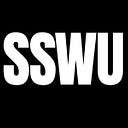A better social work (and licensure system) is possible: SSWU Chicago’s statement on the passage of HB2365 in the Illinois General Assembly

Update: HB2365 was signed into law by Gov. JB Pritzker. We thank Gov. Pritzker for signing this legislation and look forward to HB2365’s implementation across Illinois.
Social Service Workers United Chicago celebrates the passage of HB2365 in the Illinois General Assembly and looks forward to Gov. JB Prizker signing it into law. This bill takes the first step in breaking the Association of Social Work Board’s monopoly on social work licensure by creating an alternative pathway to clinical social work licensure for Illinois social workers.
Historically, according to the ASWB’s own data, a significant number of social workers do not pass the LCSW exam on their first attempt. Now, thanks to HB2365, social workers who do not pass the LCSW exam on their first try can obtain their LCSW licensure through an additional 3000 hours of practice and supervision hours. Social workers who have taken the LCSW exam 5 years or less before January 1, 2024 and have done at least 3000 hours will be instantly eligible for their LCSW. This will provide a clear path to LCSW licensure without requiring the constant stress–and expense of taking and re-taking the LCSW exam workers needed in Illinois behavioral healthcare workforce.
We thank social workers across Illinois who contacted their legislators, submitted witness slips and written statements, and shared why it was so critical to stop ASWB. This bill was a direct response to the ASWB’s own long overdue report which showed significant racial, ethnic, age, and language disparities in ASWB exam pass rates. Illinois social workers Cassandra Walker, LCSW, CCTP and Brit Holmberg, LCSW led the charge to develop, advance, and pass HB2365. We also want to recognize the bills cosponsors Rep. Lindsey Lapointe and Sen. Karina Villa, and the work of NASW-Illinois leadership in advocating for this bill and providing necessary technical and logistical support for HB2365 supporters and advocates. HB2365 builds upon another NASW-Illinois backed bill passed in the summer of 2021, which ended the ASWB exam requirement for the LSW license in Illinois.
SSWU Chicago was honored to support this organizing effort by publicly educating social workers on the importance of passing HB2365 and organizing social workers to submit witness slips and written testimony. We must name that much of the work to make HB2365 a reality was done by social workers who do not hold professional legislative or advocacy jobs, and were designing social media graphics, developing action toolkits, collecting witness testimonies, and driving witness slip submissions on lunch breaks and in between meetings and sessions with clients.
We also must name the fact that SSWU member and Stop ASWB organizer Cassandra Walker faced unacceptable unwarranted negative criticism, repeated purposeful misgendering, anti-Black erasure, and other targeted attacks due to their support and advocacy of HB2365 from opposition social workers. This behavior has no place in social work and is proof that passage of ASWB exams is completely separate from ethical, competent, and compassionate social work practice. The passage of HB2365 is a clear rebuke of the hateful, factless fear mongering tactics of such opposition.
Social work licensure and licensure exams are a very new concept in social work. When licensure was first proposed in the 1970’s, many groups, including the National Association of Black Social Workers shared concerns that this would gatekeep many good social workers out of the profession [Bell, J. M., & Bell, J. (2014). They were right. In the decades since the establishment of licensure and state “title protection” laws, wages have not increased and working conditions have not improved. Social work’s fundamental challenge that it is a profession and workforce designed to not reflect the communities we live and work in has accelerated dramatically–widening disparities, divisions and gatekeeping between the workers providing care and clients seeking it.
A better social work is possible and we look forward to continued organizing to break down these gates entirely.
Social Service Workers United Chicago is a collective of social service workers organizing for better working conditions for workers, better treatment and living conditions for clients, and collective liberation for everyone. Learn more by emailing us at socialserviceworkersunited@gmail.com
